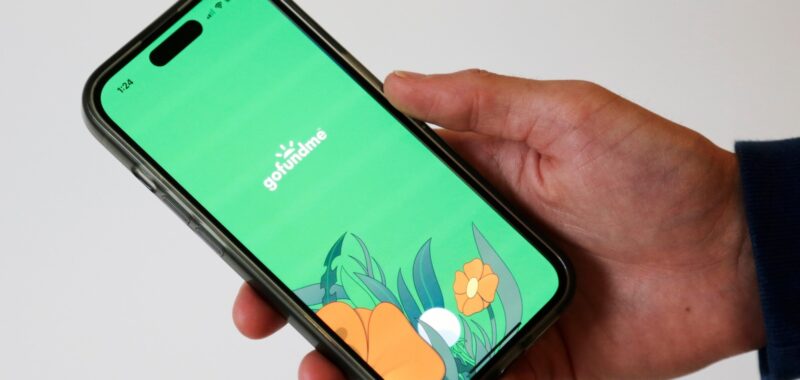NEW YORK — New GoFundMe tools will make it easier to circulate causes across online platforms in a push to cater toward younger generations.
The crowdfunding site hopes to meet digital natives in the online spaces where they frequently advocate, streamlining the donation experience to encourage more charity and connecting traditional nonprofits with a demographic that prefers direct contributions over institutional giving. Among the features rolling out this fall are fundraising widgets for video game streamers, personalized profiles to highlight users’ philanthropic interests and an integrated button on Instagram to donate.
“We play a really important role helping people ask for help and give help in the world,” GoFundMe CEO Tim Cadogan told The Associated Press. “We want to make sure that people can carry that with them, and communicate and express that, in the places where they spend time.”
The products reflect the for-profit company’s internal recognition that Gen Z’s habits make social media an untapped source to drive charitable contributions. Gen Z respondents ages 18-26 are much more likely than older people to regularly share causes or fundraisers on their accounts, according to a survey led this summer by GoFundMe. Half reported doing so at least once a week and 41% said social media content compelled them to research or support a cause.
GoFundMe allows users to create online fundraising pages where both their personal networks and benevolent strangers can help cover large costs with collective gifts. People turn to the platform for help affording basic needs like rent or unexpected emergencies like surgeries. The company collects a transaction fee of 2.9% plus 30 cents for every donation.
It’s not the only player in this space. But GoFundMe, already the largest crowdfunding site with $30 billion generated since 2010, has recently moved to increase its influence in the philanthropic sector. It signed a deal in 2022 to acquire Classy, an online fundraising platform that facilitates giving specifically for nonprofits.
This latest announcement marks GoFundMe’s entrance into a market dominated by competitor Tiltify, which enables fundraising on virtual livestreams. On Monday, GoFundMe released in-video fundraising widgets for live streamers across platforms including Twitch and Instagram Live. A QR code brings viewers to the donation page and a tracker shows how close the campaign is to reaching its goal.
The moves also signal the continuation of GoFundMe’s attempts to better serve nonprofit partners in addition to everyday organizers.
A Meta partnership will launch Oct. 31 on Instagram for organizers in the United States, Canada, United Kingdom, Ireland and Australia. GoFundMe promises a “seamless” integration of fundraisers on Instagram Stories and a “polished look” to help campaigns stand out.
Nonprofits will be able to nurture donor relationships further with identifying data on contributors who give through Instagram, according to a company spokesperson.
“It’s equally important for us to support nonprofit organizations who are often working on really big, big, deep structural issues,” Cadogan said.
The company is also building out user profiles. Starting Nov. 13, individuals and organizations can personalize their own accounts with more details about their giving.
The customizable pages can be made private. But Cadogan said the goal is to inspire others toward action through more public proclamations of users’ own charitable efforts. Organizers can pin a fundraiser or nonprofit to their page with a brief description about why the cause matters to them. Unique links will track collective impact with reminders of how many people gave money from a link on your profile.
If LinkedIn is the site where users highlight their professional side, Cadogan said he wants GoFundMe Profiles to be the site where people show “this is me as a person that does good in the world.”
“We hope that over time that becomes the place on the internet that you express your altruistic side of your identity,” he said.
Youth-facing organizations must follow young people to the platforms where they find community, according to Fast Forward Executive Director Shannon Farley. Her organization helps nonprofits scale their impact with software and she previously ran an online network of millennial philanthropists.
Online spaces provide a “real opportunity” for digital-first nonprofits, she said, but it’s harder for a “traditional, brick and mortar organization” to break into them.
“Social media is where young people and young donors live,” Farley said. “If you’re not going to the places where people are every day, you’re missing out on a whole group of people who could be backing your cause.”
___
Associated Press coverage of philanthropy and nonprofits receives support through the AP’s collaboration with The Conversation US, with funding from Lilly Endowment Inc. The AP is solely responsible for this content. For all of AP’s philanthropy coverage, visit https://apnews.com/hub/philanthropy.

